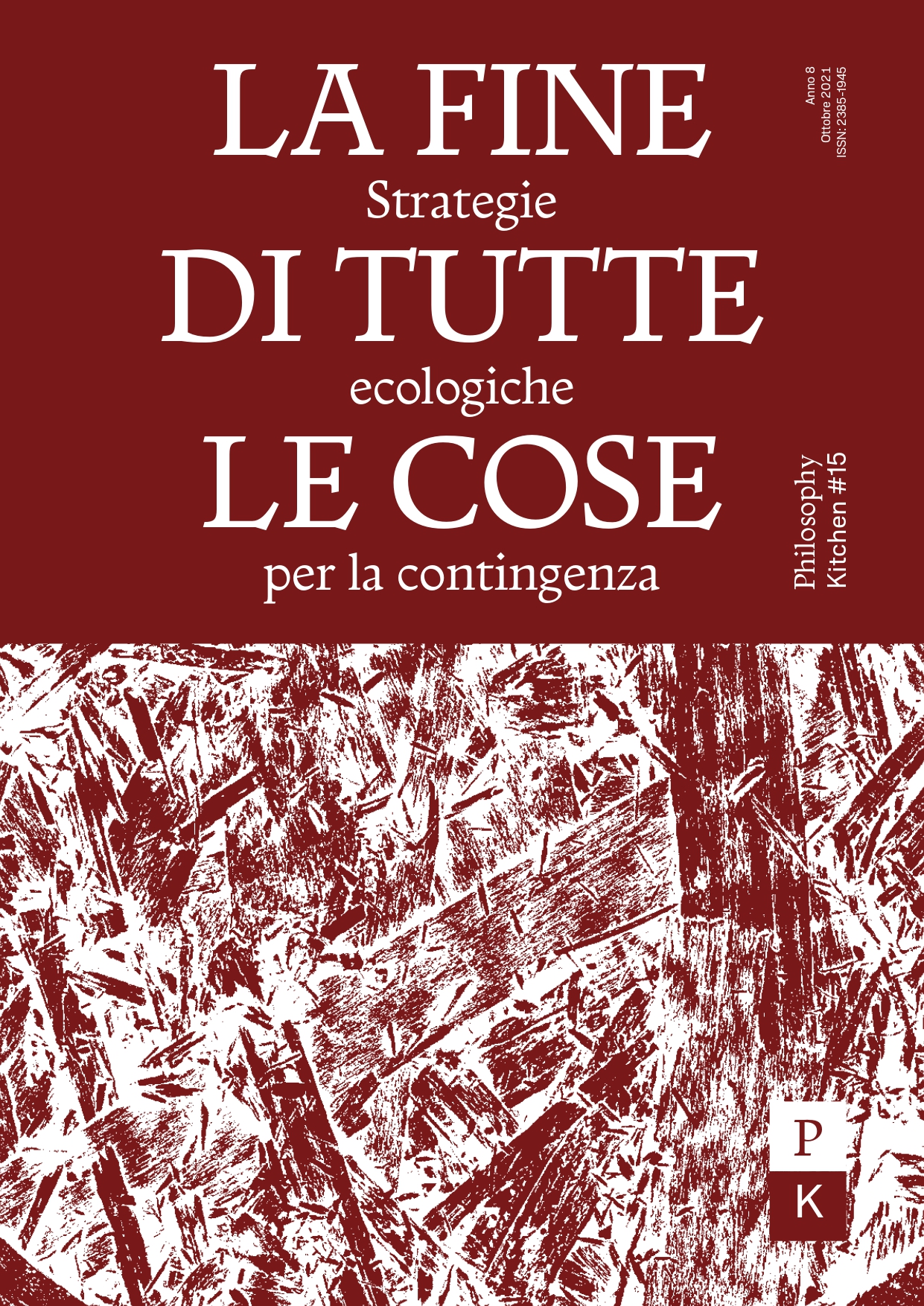Inhabiting the End of the World. Practices of Existence in D. Haraway and T. Morton
DOI:
https://doi.org/10.13135/2385-1945/6223Abstract
The aim of this article is to highlight the theoretical implications of Donna Haraway and Timothy Morton’s reflections on the role played by the notion of “nature” in the relationship between human subjectivity and otherness. The impasse resulting from the so-called “end of the world” has shown how the present time has ceased to play a decisive role in the conceptualization of the relationship between subjectivity and global warming. Our intent will therefore be to show how for the two authors it is necessary to investigate this excluded dimension, learning to live with the problem and implementing practices of resistance able to modify the anthropocentric paradigm. We will describe the affinities between Morton’s concept of “mesh’’ and Haraway’s notion of “becoming-with”, showing that a close interaction between creatures and species lies at the basis of both concepts. We will deduce how, for both Morton and Haraway, it has become necessary to rethink the notion of “world” and the notion of “subject”, as they represent the basic entities conveyed by the anthropocentric view. To this end, we will describe the role taken by subjectivity between Anthropocene, Capitalocene, Chthulucene, highlighting how the way in which nature is conceptualized determines the relationship between the subject and the world.





